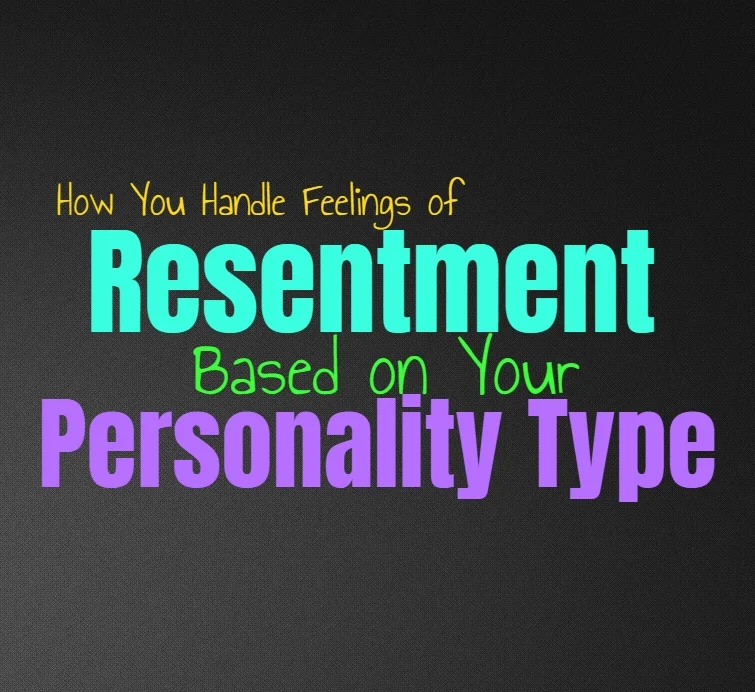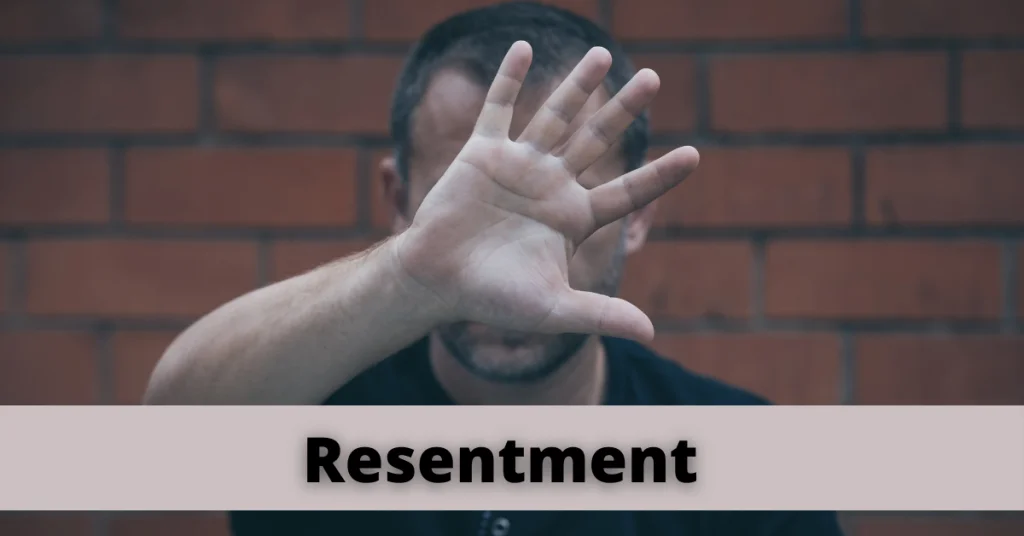Do you ever feel like you’re constantly walking on eggshells around someone? Do you feel like you can never do anything right in their eyes? If so, then you’re probably dealing with a person who is harboring resentment. Resentment can be a very destructive emotion, and it’s important to learn how to deal with it before it destroys your relationship. In this blog post, we will discuss what resentment is, its effects on relationships, and how to overcome it.
Contents
What Is Resentment?
 Resentment is a feeling of displeasure or hostility that we experience when someone harms, inconveniences, or threatens someone. It is a natural reaction to real or perceived threats and can be helpful in motivating one to take action. However, when resentment becomes a habit, it can be destructive both to your relationships and your own mental health.
Resentment is a feeling of displeasure or hostility that we experience when someone harms, inconveniences, or threatens someone. It is a natural reaction to real or perceived threats and can be helpful in motivating one to take action. However, when resentment becomes a habit, it can be destructive both to your relationships and your own mental health.
This can also be said about anger. Anger is a feeling of intense displeasure or hostility that we experience when something unjust happens, someone mistreats us, or we feel threatened in some way. The key difference between anger and resentment is that while anger can be directed at the person or situation that caused one harm, resentment often targets people who are unrelated to the original problem.
This also means that resentment can fester and continue to cause harm long after the original event.
Signs of Resentment

There are many signs of resentment, but some of the most common include:
Anger
This is one of the most common signs of resentment. If you find yourself frequently feeling angry, especially towards people who have nothing to do with the cause of your anger, then there is a good chance that resentment is playing a role in your life.
Hurt Feelings
If you find that you’re constantly hurt by things that people say or do, even if they don’t intend to hurt you, it’s likely that resentment is at play. This can be especially true if the person who said or did something harmful is someone you care about and should be able to trust.
Guilt
Resentment often causes you to feel guilty for things you have no control over. You may feel like you’re not being fair to the person you’re resenting, or that you’re not living up to your own standards.
Isolation
This is another common sign of resentment. When you’re feeling resentful, it can be hard to want to be around people. You may start to withdraw from your friends and family, or simply stop interacting with them as much as you used to. This can lead to feelings of loneliness and isolation.
Negative Feelings
Sometimes, resentment can cause you to feel negative about everything. You may start to see the world in a negative light, or develop a pessimistic outlook on life. These feelings are also a sign that resentment is playing a role in your life. Sometimes, resentment can even lead to depression.
Feelings of Regret
Sometimes there are some feelings of regret mixed in with resentment. This is because, deep down, you know that resentment is not a healthy emotion to have and that it’s only going to cause more harm in the long run. These are also signs that you should address your resentment head-on.
Fear of Things
These are also may be a sign of resentment. If you start to fear things that are completely unrelated to the situation that caused your anger or resentment, it’s possible that this emotion is at play. For example, you may start to fear people who are similar to the person who harmed you in some way.
Inability To Stop Thinking
Sometimes, resentment can cause you to think about the person or situation that caused you to harm constantly. You may find yourself obsessing over what happened and how it made you feel. This is another sign that your resentment has become a habit. Sometimes, it can be difficult to break this habit.
Causes of Resentment

There are many causes of resentment, but some of the most common include:
Feeling Unimportant or Ignored
If you feel like you’re not being heard or that your opinion doesn’t matter, resentment is likely to develop. This can be especially true if the person who is ignoring you is someone you care about and should be able to trust.
Being Treated Unfairly
If you feel like you’re always the one who ends up getting hurt, or that people are taking advantage of you, resentment will probably start to grow. This can also happen if you feel like you’re always doing all the work in a relationship while the other person takes advantage of your efforts.
Betrayal
Feeling betrayed by someone you care about is one of the most common causes of resentment. This can be especially true if you feel like the person betrayed you intentionally or that they knew what they were doing would hurt you. Sometimes, even a perceived betrayal can cause resentment to develop.
Revenge
Sometimes, people hold on to resentment as a way of getting revenge on the person who hurt them. This is often an unhealthy way to deal with anger and can lead to more problems down the road. This also means that the person you’re resentful of is still in control of how you feel, which is never a good thing.
How Does Resentment Affect Someone?

There are many effects of resentment, both mental and physical. Some of the most common include:
Mental Health Issues
There are a number of mental health issues that can be caused or exacerbated by resentment. These include depression, anxiety, and post-traumatic stress disorder. Sometimes, resentment can even lead to thoughts of suicide.
Physical Health Issues
Resentment can also have a number of negative physical effects on someone. These can include things like high blood pressure, heart problems, and chronic pain. It’s important to remember that these are just some of the potential physical effects of resentment; it’s possible for it to cause all sorts of other health problems as well.
Relationship Problems
Resentment often causes relationship problems. This is because it breeds anger, bitterness, and division. It can be difficult for two people who are resentful towards each other to have a healthy relationship. In fact, most resentful relationships eventually end in divorce or separation.
Addiction
Sometimes, people turn to addiction as a way to cope with their resentment. This can be anything from drugs or alcohol to gambling or sex addiction. Addictions can be very harmful and often cause more problems than they solve. This is another reason it’s important to deal with resentment in a healthy way.
How To Deal With Resentment?

There are a number of ways to deal with resentment, but some of the most effective include:
Talking To Therapist
If you feel like your resentment is becoming too much to handle, talking to a therapist can be a good option. This is someone who will be able to help you understand and cope with your feelings.
Journaling
Journaling can also be helpful for dealing with resentment. It allows you to express your thoughts and feelings in a safe and private space. This can be especially helpful if you don’t feel comfortable talking about your resentments with other people.
Counseling For Relationship Issues
If you’re dealing with resentment in a relationship, counseling can be a good option. This is a way to get help from an objective third party who can help you resolve the issues causing the resentment.
Self-Care
It’s important to take care of yourself when you’re feeling resentful. This means doing things like exercise, relaxation techniques, and spending time with supportive people. Taking care of yourself will help you cope with your resentment in a healthy way.
How To Help Someone Who Feels Resentment?

There are a few things you can do to help someone who feels resentment:
Listen Without Judgment
The most important thing you can do is listen to the person without judgment. Let them talk about their feelings and don’t try to interrupt or argue with them. This also means not trying to convince them that they’re wrong or that the person they’re resentful of is actually a good person.
Validate Their Feelings
It’s also important to validate the person’s feelings. Let them know that you understand why they feel the way they do and that their feelings are valid. Sometimes, people feel like their feelings are wrong or irrational, and it’s important to let them know that this isn’t the case.
Provide Support
Finally, provide support to the person. Let them know that you’re there for them and that you want to help them work through their resentment. You can do things like offer advice, provide emotional support, or just listen when they need someone to talk to.
Don’t Minimize Their Feelings
Resentment is a very strong emotion, so it’s important not to minimize the person’s feelings. Don’t tell them that they’re overreacting or that their anger isn’t justified. This also means not trying to talk them out of their resentment. It means listening to them and taking their feelings seriously.
Encourage Them To Seek Help
If the person seems like they’re struggling to deal with their resentment, encourage them to seek help. There are a number of resources available, including therapists, counseling services, and support groups. You can also offer to go with them or help them find the right resources.
Try To Understand
It’s important to try to understand where the person is coming from. Even if you don’t agree with their feelings, it’s important to at least try to see things from their point of view. This will help you build a better relationship with them and it may even help resolve the issue causing the resentment. You can also use this information to help you deal with your own resentment.
Conclusion
Resentment is a very strong emotion, and it can be difficult to deal with on your own. If you’re feeling resentful, there are a number of things you can do to help manage your feelings. Some of the most effective methods include talking to a therapist, journaling, counseling for relationship issues, and self-care. It’s also important to listen to the person who is resentment without judgment and validate their feelings. You can provide support by offering advice, emotional support, or just listening when they need someone to talk to. Don’t minimize their feelings and encourage them to seek help if they seem like they’re struggling to deal with their resentment. By following these tips, you can manage your resentment in a healthy way.
A Word From Mantra Care
Your mental health — your psychological, emotional, and social well-being — has an impact on every aspect of your life. Positive mental health essentially allows you to effectively deal with life’s everyday challenges.
At Mantra Care, we have a team of therapists who provide affordable online therapy to assist you with issues such as depression, anxiety, stress, relationship, OCD, LGBTQ, and PTSD. You can take our mental health test. You can also book a free therapy or download our free Android or iOS app.


